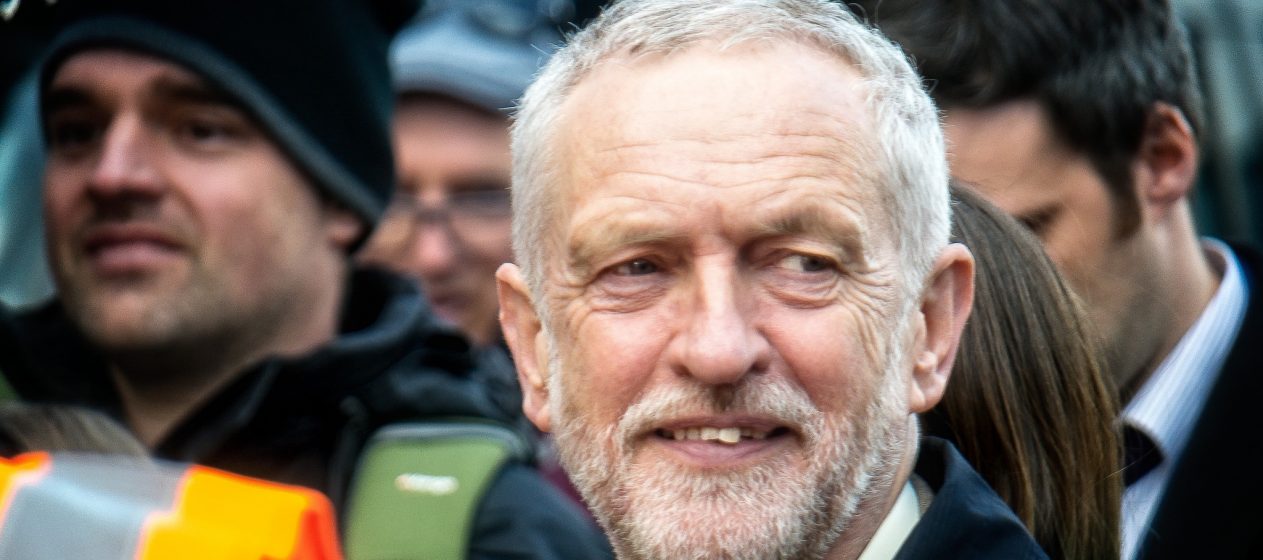Last night I attended an emergency local meeting of Momentum (the Labour Party focused organisation set up to defend Jeremy Corbyn’s leadership). More than fifty people crowded into a small meeting room of the South Oxford Community Centre to express their indignation at the actions of the Parliamentary Labour Party (PLP). Like every Momentum meeting I’ve attended, this was done in tones so polite and reserved that you’d have hardly guessed that we were in the midst of the most profound political and constitutional crisis of the country in at least a generation. Though the group would have had every right to storm and shout, they instead expressed their demands with dignity and calm resolve. For someone who did not grow up in this country, it was a rather touching portrait of the character of the English people.

A rather different picture is given by my colleague, Alexander Ewing, in his recent post for this blog. He writes the protests that took place on parliament square have the ‘odour of the Militant days’ and that that movement is ‘neither kind nor gentle.’ But from my interactions with the group, I can’t help but wonder whether we’re talking about the same people. Our particular group was chaired by a rather lovely pensioner who reminds me more of my grandma than the stereotype of a militant Trotskyist. The rest of the group included everyone from trade unionists from East Oxford to well-meaning Jericho liberals, from young parents with their babies to their grandparents, and from life-long socialists to freshly politicized school children. It was a cross-section of the people of this city, and to borrow a now popular phrase, this is what democracy looks like.
Contrary to Ewing’s accusation that ‘winning elections is not the mission of the hard left’, I can assure him that every person in that room was committed to a Labour government winning power. But what is not at all clear to me, is how his suggestion for his new rump party of Labour parliamentarians can win an election without the party activists to do it. Winning elections requires a party infrastructure and a committed base willing to do the hard work of electioneering. If the PLP decides to rid itself of the people, does he really believe that it will be able to find itself another?
Nor do I understand how an alliance of Labour parliamentarians with the Liberal Democrats (that well-known election-winning machine), as Ewing suggests, will deliver victory. We should also do well to remember what should be an obvious truth, but everyone seems to ignore, that ‘winning an election’ is not a static achievement. Parties have the power, within limits, of defining the terms of an election, and it therefore matters what kind of election Labour intends to win. An election fought (and even won) on the Tories’ terms is in a very real sense also a defeat.
Because we instead want to win an election on a properly progressive platform Ewing claims that for this movement ‘party purity is what gets them out of bed in the morning’. Since this movement is overwhelmingly supported by the most precarious sections of society, what actually gets them up in the morning is having to work in increasingly awful and badly paid jobs. But in any case, if ‘purity’ was really what the people in Momentum were asking for, it is perhaps worth remembering that Jeremy Corbyn’s platform is an epic historical compromise.
If I and others were so exclusively concerned with ‘purity’, we would be calling for the reinstatement of Clause 4 and demanding the common ownership of the means of production, distribution and exchange. But we are not, and we are not because we pragmatically recognize the constraints of contemporary politics. But within those limits, we have a chance of pushing for an end to austerity and racist immigration policy.
We cannot allow a timid and cowardly Parliamentary Party to undermine the democratic will of its members and diverge from that goal. The vote of no confidence is undoubtedly a blow, and no one who supports Corbyn’s platform should be complacent about the challenge that faces us. But it is also not a fatal one. As long as the membership stands firm, we can beat this challenge. Now is not the time to fantasise about an alternative ideal candidate – they do not exist and could not make it onto the ballot. It is Corbyn or defeat, and those who supported him last year cannot abandon him now. Sometimes politics means being partisan, and this is one of those moments.
Finally, Ewing writes that this is ‘now a fight between two forms of democracy: a representative form on one hand and a party plebiscite on the other.’ No it is not. It is a fight between democracy and a form of aristocratic technocracy. Launching a coup (and an increasingly incompetent one at that) against a leader just nine months after he was elected with an overwhelming mandate from the members, with no reason to believe that this support has significantly changed, is such an affront to democracy that adjectives to describe it fail me.
Contrary to Ewing’s suggestion, it is and must be the party as a whole that is sovereign and not an embittered sliver of it. It is beyond me how the opposition to Corbyn believe that Labour can reconnect with its disillusioned heartlands by replacing the current leadership with the coterie of SPADs, PR advisors, and Oxford PPE graduates that got Labour into this mess. A party of elites that takes its direction from the City of London, has no hope of winning and holding power in any meaningful sense. That formula may have worked for a few elections, but it ultimately undermined its own basis. Instead, Labour needs to become a party that is organically connected to its trade unions, its activists and the people of this country as a whole. A truly successful Labour Party will put democracy and popular sovereignty at its heart.



